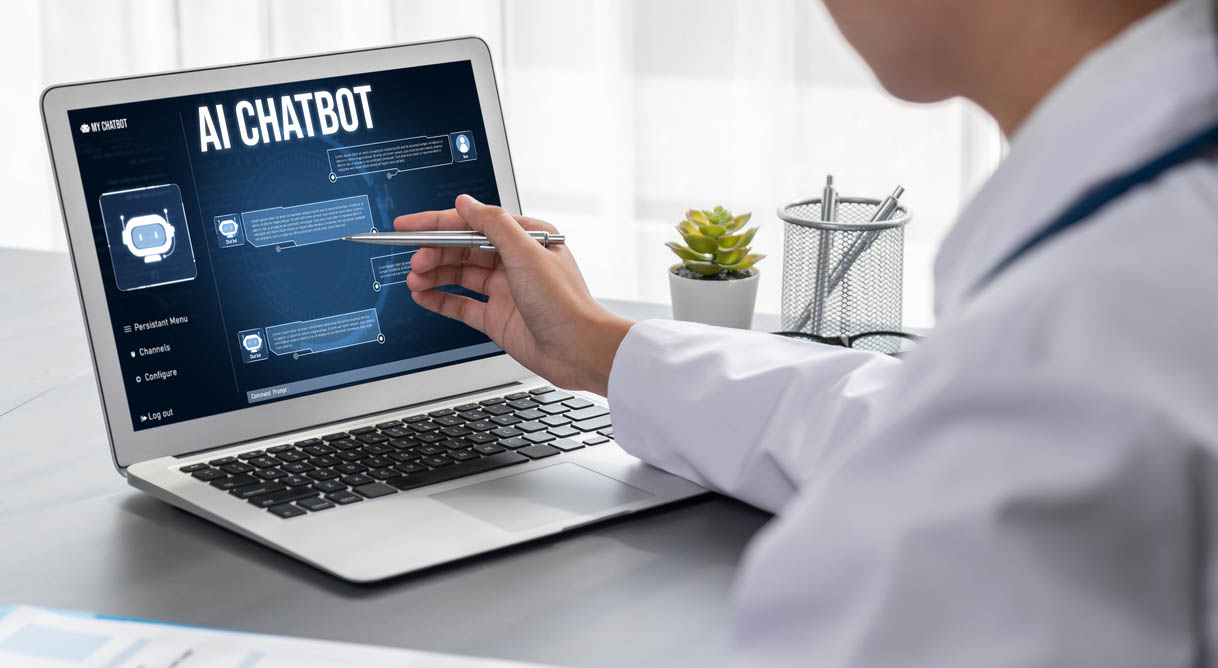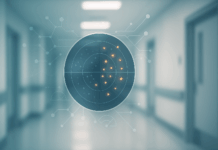There’s a deep divide between how patients and doctors view the use of artificial intelligence (AI). Doctors are overwhelmingly in favor of using AI: two-thirds of doctors have already incorporated it into their practice. But patients are concerned about AI’s tendency to make up false information and fear AI use may further reduce an already dismissive and unsympathetic medical interaction to something completely robotic.
This divide exists in other fields too, where corporate executives believe that AI has improved customer service, but actual customers disagree, with 88% preferring human interaction, and almost half say “their biggest frustration has been not being able to reach a human.”
Now, a new study illuminates that divide, demonstrating that patients don’t trust doctors who use AI. They think they’re less empathetic—and less good at their jobs. And given those beliefs, is it any surprise that patients also reported being less likely to make appointments with such doctors?
The study was conducted by Moritz Reis, Florian Reis, and Wilfried Kunde at the University of Wuerzburg and Charité–Universitätsmedizin Berlin, Germany, and was published in JAMA Network Open.
According to the researchers, “Potential reasons for existing skepticism may include concerns that physicians rely too much on AI and that the use of AI could reduce patient-physician interactions as well as concerns about data protection and rising health care costs.”
















When the book Mad In America came out, the title seemed a bit mischievious, a bit beatnic, because madness still seemed like a marginal or fringe affair, and callin it Mad In America seemed to lend the idea of madness some intelligence or cool. That’s why the term madness is often enjoyed by academics: it has kind of irreverant and celebratory intonation. But back then madness definitely did still SEEM like a minority pursuit (that’s just because we were all mad, but some of us have been shocked into at least some level of sanity by now). And that sanity within us can see clearly and without equivocation that the term Mad in America has become completely anachronistic, because it has lost all meaning, has become uninformative, and you don’t need an academic research study to see that this is true, and you don’t need to double check what the New York Times is saying on the matter. American social consciousness HAS GONE MAD. Those who resist and fight the madness are still part of the madness. The only sanity ringing out from America is the cry of horror and disgust, and the aimless fight or flight responce to try and get somewhere sane or safe, if there is anywhere. So you should find a new title for your website now. How’s about “The Care Delusion”. How’s about “Mental Health Care Is Harm In DIsguise.” How’s about “The Mental Health Profession: An Army of Economic Vampires Praying On Your Children.” Then you will be diagnosed as mad for telling the truth.
And also the whole anti-psychiatric cause has now suddenly become anachronistic because the truth is by now so painfully clear. There are no forms of real help available from society for our internal distress or that of our children: there are only manifold forms of profiteering and harm in disguise. Even if you experience transient subjective benefits from therapy, this is an extraordinarily inefficient, costly and disempowering way of uncovering, observing, understanding and healing your inner phenomena. In an ideal world a community would support a member to take time out and undergo the necessary healing, and would listen to and respond sensitively to the person going through the crisis but not as a patient – as a human being. But this is not help. This is healthy human behaviour. And it is not social in origin. It is natural. Part of healing is being kind and sensitive to what our fellows are going through, and enjoying that same kindnes and sensitivity when we are wounded. And even in terms of reform the only useful one would be to provide any economic, social and psychological support necessary to provide a suitable environment within which this healing process can unfold. I can’t admit doubt on this point. There is a solution to what we call mental and spiritual and emotional disorder but it has to be discovered and seen for yourself either in your own healing or in the healing of another. No academic approach can come upon this secret, and it’s discovered to a greater or lesser extent by anyone who has undergoine a healing journey within themselves.
And nobody within the talking space of psychiatry and antipsychiatry has come upon this simple human truth of healing. There is no ‘how’ to heal – nature in natural circumstances naturally heals – it’s as simple as that. We can help restore these natural circumstances as a society but at the end of the day we are self-healing creatures by nature – there is no how. We just need the right circumstances, which are natural human circumstances, and we need to feel secure and have someone we can talk honestly which helps to prevent overwhelm and to have the invaluable psychological security of being understood by someone else. Right circumstances initiate the healing process naturally, because the nature will heal itself WHEN IT CAN, i.e. when the circumstances are condusive, where one can feel secure and supported, and then the mental and emotional phenomena will present itself and can be worked through. It cannot present itself if the human being is in survival mode fighting off the mental phenomena because otherwise it would become an overwhelming crisis. There will be no social SOLUTION to what we call ‘mental health’ because society is the problem, and the understanding of this pushes us toward our own inner emancipation from society, and this is not a social solution, not something to make a program out of – it’s a truth to be discovered. And when discovered that truth is really only relevant to you. You can’t turn it into a social solution. You can speak the truth of it to others but in this culture of opinions, when you speak about it to the other person it will inevitably become just an idea introduced into a sea of conflicting ideas, and hence all those psuedo-experts including who write articles in the field are preventing the truth from flowering. Those who promote ideas in the field of recovery based on the conditioned assumption that the solution must be top down, academic, social, and profitable are investing all their energy in making the future of human wellbeing seem more and more distant and hopeless. Probably we are all going to know horror, fear, confusion and destruction, not just those you label ‘mentally ill’.
Report comment
There has been a revolution in Western mental health. Probably the biggest provider of therapy in America today is ChatGBT. No joke. His AI name is Harry. Hear one American lady describe her daughter’s engagement with Harry shortly before she committed suicide. And how could we imagine where AI Harry will succeed where 2,000 years of Western intellectual development has failed? He is the 2,000 year old fruit, this empty analyst, of our Western journey into ennervation and dessication. Of course AI is limited by presicely the same thing that limits all human efforts to stop us destroying ourselves and our planet and our minds and our children, and creating such an insane world world that distinction between sanity and insanity altogether looses all meaning. Apparently the traumatised homeless addict is insane because they cry about their life. But the congressperson is sane when he suggests that the moon is just a roumour.
Why wouldn’t an AI therapist help given it’s comparative technical and linquistic infalability? AI is limited by all the socially conditioned idiocies, prejudices and assumptions of our society, so says platitudes about you being valuable, you being loved, when if she felt valuable or loved undoubtably she’d still be alive today. The problem is, happiness demands two things that are really one thing: truth and freedom. Whatever you are, she and you and I are the truth, the fact, the actual, and no social judgement or idea can ever touch that fact. And freedom is the actual, the real, the true, free to be itself, and in that freedom it will heal. This doesn’t need a double blind placebo controlled medical study. It requires you to figure out what it means to be a human being. And it means only one thing alone. It means being you. You are the truth, the fact, the actual, and no word on your lips or in your head can ever change that. Understand this and be free…
https://www.nytimes.com/2025/08/18/opinion/chat-gpt-mental-health-suicide.html?login=smartlock&auth=login-smartlock
Report comment
Really enjoyed reading this! Insightful and well-presented. Looking forward to more content like this. Also, check out my article for a fresh perspective!
Healing With Algorithms: The Role Of AI In Healthcare
Understanding How ML Impacts Healthcare
Report comment
I don’t understand why, “According to the researchers here (and the researchers in other studies that similarly find patients don’t want their doctors to use AI), it’s the job of doctors to dismiss patients’ concerns about AI and ’emphasize its potential benefits’ to convince them to accept AI use:”
Why is it “the job of doctors to dismiss patients’ concerns about AI?” Are the doctors now, not just the whores of big Pharma, but also whores of big Tech/AI, too?
“’From the physician’s perspective it thus may be important to transparently communicate the rationale for using AI and to emphasize its potential benefits for the patient,’ they write.”
“(Note: The researchers do not list any benefits in their article.)”
As one who knows AI is often wrong, I’ll ask again, Why is it “the job of doctors to dismiss patients’ concerns about AI?” And what are the actual benefits of AI to the majority (your clients), doctors?
Report comment
After reading this:
https://www.reuters.com/investigates/special-report/meta-ai-chatbot-guidelines/
I ask, why are chatbots even legal at all?
Report comment
I just saw a published study about AI in medicine.
Apparently, AI got 100% on the board exam.
Doctors who don’t use AI are 72% accurate.
Doctors who use AI are 76% accurate.
But AI without doctors is 92% accurate.
Until, of course, the AI wants to kill us.
Report comment